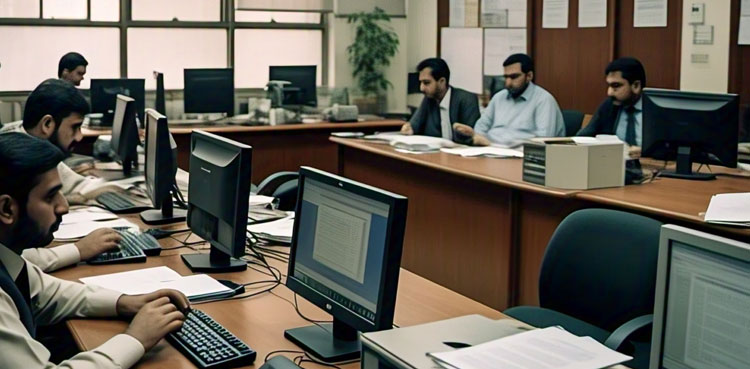In today’s fast-paced digital age, where information is disseminated at lightning speed, maintaining journalistic integrity and ethical standards has never been more crucial. The Editors’ Code of Practice, maintained by the Independent Press Standards Organisation (IPSO), serves as a cornerstone for responsible journalism in the UK.
This code ensures that news organizations adhere to high ethical standards while reporting, protecting both the public interest and individual rights. In this article, we will explore what the Editors’ Code entails, how it functions within IPSO, and why it remains essential for modern journalism.
What is the Editors’ Code of Practice?
The Editors’ Code of Practice is a comprehensive set of guidelines designed to regulate the conduct of newspapers, magazines, and online publications in the United Kingdom. It was first established in 1991 and has since evolved to address emerging challenges in media ethics. The code covers critical areas such as accuracy, privacy, harassment, intrusion into grief or shock, and protection of children, among others.
At its core, the Editors’ Code seeks to balance two fundamental principles:
Freedom of Expression : Ensuring journalists can report freely on matters of public interest.
Respect for Individual Rights : Protecting individuals from harm caused by intrusive or unethical reporting practices.
By adhering to these principles, the code fosters trust between publishers and their audiences, reinforcing the credibility of the press.
How Does IPSO Enforce the Code?
The Independent Press Standards Organisation (IPSO) is the regulatory body responsible for upholding the Editors’ Code of Practice. Established in 2014, IPSO replaced the former Press Complaints Commission (PCC) to provide stronger oversight and accountability in the media industry. Here’s how IPSO enforces the code:
1. Handling Complaints
Members of the public who believe they have been affected by breaches of the Editors’ Code can file complaints directly with IPSO. These complaints are thoroughly investigated, ensuring fairness and transparency throughout the process.
2. Adjudications
If a publication is found to have breached the code, IPSO issues an adjudication outlining the violation. Publications are required to publish corrections or clarifications prominently, thereby holding them accountable for their actions.
3. Sanctions
While IPSO does not impose financial penalties, repeated or serious violations may lead to reputational damage for offending publications. This incentivizes compliance with the code.
4. Guidance and Training
IPSO also provides guidance to editors and journalists on interpreting and applying the code effectively. This proactive approach helps prevent potential breaches before they occur.
Key Clauses of the Editors’ Code of Practice
To better understand the scope of the Editors’ Code, let’s examine some of its key clauses:
1. Accuracy
Journalists must take care not to publish inaccurate, misleading, or distorted information. They are obligated to correct significant errors promptly and with due prominence.
2. Privacy
Publications must respect individuals’ private lives unless there is a genuine public interest in disclosure. This clause protects against unwarranted intrusion, particularly in sensitive situations like medical treatment or family disputes.
3. Harassment
Reporters and photographers should not engage in persistent pursuit or intimidation tactics when gathering stories. Respect for personal boundaries is paramount.
4. Children
Special consideration is given to safeguarding minors. Journalists must avoid identifying children involved in criminal cases or those whose welfare might be compromised through exposure.
5. Discrimination
The code prohibits prejudicial or pejorative references based on race, gender, sexual orientation, disability, or other characteristics. It promotes inclusivity and respect in reporting.
6. Clandestine Devices and Subterfuge
Use of hidden cameras or covert recording methods is strictly regulated and permitted only under exceptional circumstances justified by public interest.
Why Is the Editors’ Code Important?
1. Protecting Public Trust
Trust is the foundation of any successful media outlet. By adhering to the Editors’ Code, publications demonstrate their commitment to ethical reporting, which strengthens reader confidence.
2. Balancing Freedom and Responsibility
While freedom of expression is vital for democracy, unchecked power can lead to abuse. The code ensures that journalists operate responsibly, respecting legal and moral boundaries.
3. Safeguarding Vulnerable Individuals
From victims of crime to grieving families, vulnerable individuals often find themselves thrust into the spotlight. The code provides safeguards to minimize harm and protect their dignity.
4. Addressing Modern Challenges
With the rise of fake news and misinformation, the need for reliable, fact-checked journalism has never been greater. The Editors’ Code acts as a bulwark against unethical practices, promoting truth and accountability.
Criticisms and Future Directions
Despite its strengths, the Editors’ Code and IPSO’s role in enforcing it have faced criticism over the years. Some argue that self-regulation lacks teeth compared to statutory regulation, allowing certain publications to skirt accountability. Others question whether IPSO adequately represents diverse voices within society.
To remain relevant, the Editors’ Code must continue evolving alongside technological advancements and societal changes. For instance, addressing issues related to artificial intelligence, deepfakes, and data privacy could strengthen its applicability in the digital era.


Leave a Comment